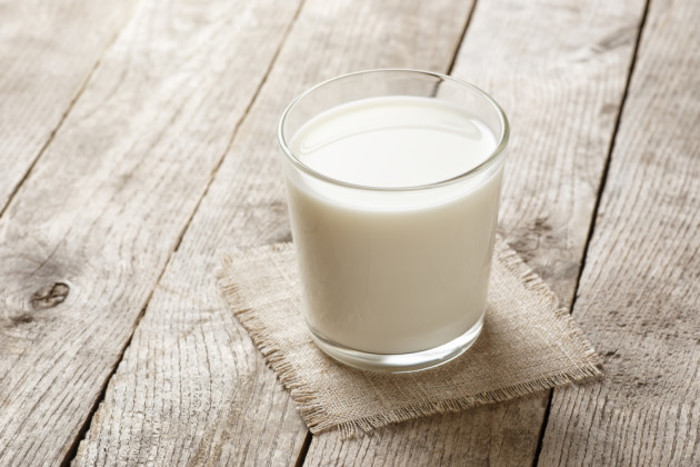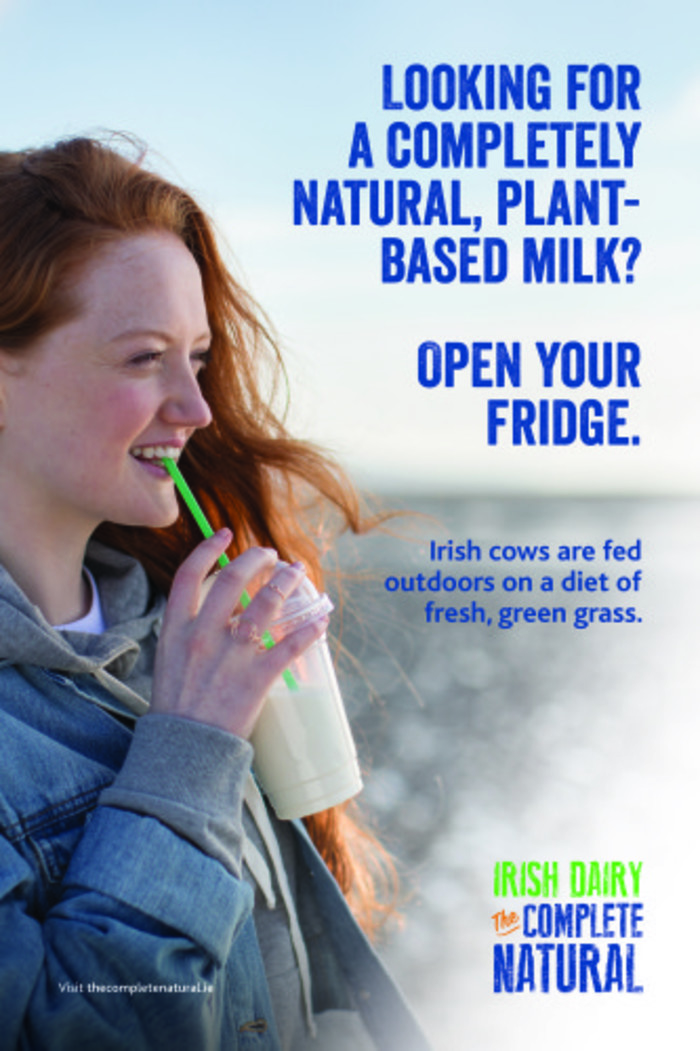The dairy council can keep its ‘insulting’ ads - despite over a hundred complaints
But the advertising watchdog upheld objections to information on the NDC’s website.
THE NATIONAL DAIRY Council (NDC) has been largely cleared of breaching advertising rules – despite more than 100 complaints over a campaign that branded milk as ‘plant based’.
The Advertising Standards Agency of Ireland (ASAI) did not uphold several criticisms of the organisation’s high-profile television and poster advertisements.
These included claims that parts of the marketing campaign were “misleading”, “insulting” and “ridiculed” consumers. However, the advertising watchdog did uphold complaints made about an element of the NDC’s online marketing.
A section that appeared on the organisation’s website – titled, ‘Milk is milk. Or is it?’ – listed the nutritional properties of both dairy milk and nut milk.

Animal-rights organisation Peta objected to the section, claiming it contained “inaccurate and deliberately misleading information” as it said dairy milk contained no added sugar while claiming plant-based milk did.
The group noted that some dairy milks, such as flavoured varieties, do contain added sugar, while some plant-based milks do not.
In response, the dairy council said that it had compared the nutritional composition of a 200ml carton of plain cow’s milk and a 200ml carton of standard nut milk, rather than individual data for branded products.
However, the ASAI said that the NDC had not included a source for its data or details of the particular nut-based product it was using for the comparison.
It said that “the absence of the information could be misleading” and considered it to be in breach of advertising code. It concluded that the section of the website must not reappear in that form.
‘Plant-based’ provocation
The ASAI also received hundreds of complaints from consumers and Peta members regarding a poster advertisement, which used the phrase ‘plant-based’ in relation to dairy milk.
Complainants claimed that the ad was “deliberately misleading” and “highly insulting”. Others claimed that the advertisers were “co-opting” the marketing methods of plant-based milks and suggesting that dairy-alternatives are “not natural”.
In response, the NDC said that the objective was to “provoke engagement with millenials” and “remind them that milk is naturally nutritious”. It defended its use of the word natural and said that using ‘plant-based’ was a “quirky play” on the term.

The ASAI noted that the term ‘plant-based milk’ is commonly used for non-dairy milks but added it was “clear the advertisement was referring to dairy milk” and would not “give rise to any ambiguity over the origins of dairy milk when it came to the purchase of the product”.
The advertising watchdog said that the ad was not misleading and so was not in breach of the code.
In a recent interview with Fora, NDC chief executive Zoe Kavanagh also defended the campaign, saying the dairy promotion body was being deliberately “provocative” in its approach.
‘Lose the fakester glasses’
Peta again objected to an NDC television ad, which featured a child in a coffee shop hassling a young woman for choosing a nut-milk latte over a traditional dairy option.
The group complained about the ad on the grounds that it “ridiculed consumers who choose to buy non-dairy products”. It claimed that the line, “Lose the fakester glasses,” implied that these shoppers were fake or followed a fad diet.
The animal-rights organisation added that many people choose to avoid cows’ milk for health reasons or personal beliefs, and the NDC should not disparage the non-dairy options that are available to consumers.
However, the ASAI accepted that the advertisers “had specifically chosen a comedic route” and did not think that the advertisement was “ridiculing consumers”.
It concluded that the purpose of the ad was to encourage the target audience – females between 20 and 29 years old – to consider dairy milk as part of their diet and did not consider it in breach of the advertising code.
The advertisements are all part of a wider campaign by the NDC – which is responsible for the promotion of dairy products in Ireland and is funded by the country’s dairy farmers – titled ‘The Complete Natural’.
The campaign aims to target younger consumers who are limiting the amount of dairy in their diets. It includes TV ads, outdoor advertising, online marketing and experiential events, such as a ‘dairy bar’ at Electric Picnic this weekend.






